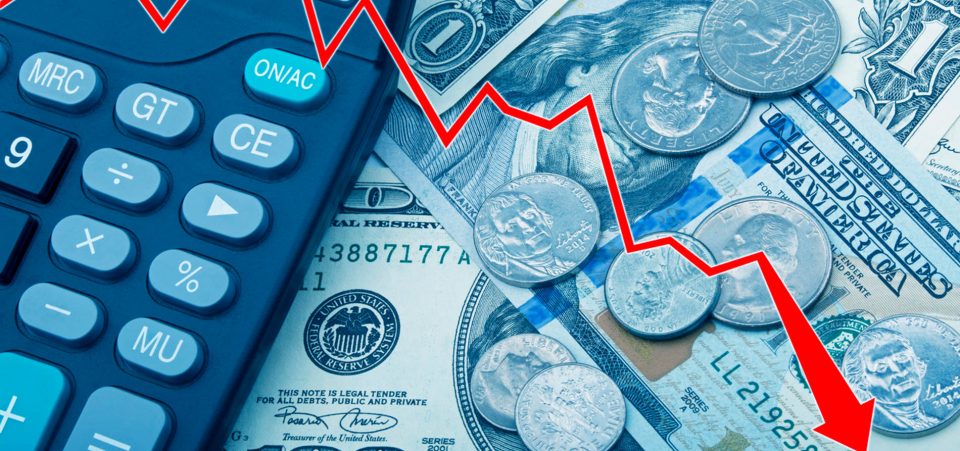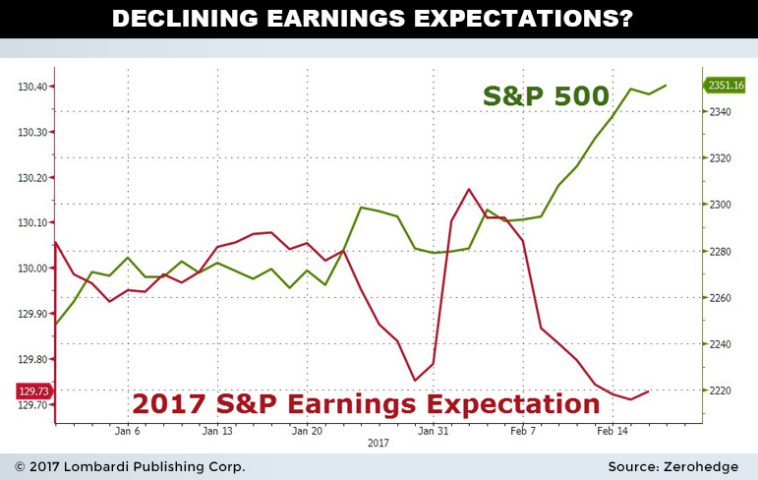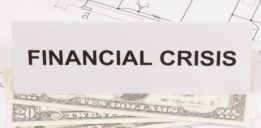Chief Investment Officer Who Called Oil Swoon Believes the Great Depression-Like Conditions Are Present Today
Mark Yusko says a U.S. recession is coming. The Chief Investment Officer of Morgan Creek Capital Management, LLC is no stranger to bold predictions. The man who predicted $30.00/barrel oil in 2016 (back in 2015 when it was over $60.00/barrel) is sounding the alarm that depression-like conditions are present within the economy. Specifically, he sees conditions as “flowing” towards the Great Depression era of 1928-1929, and that spells bad news for stock prices.
The similarities start with leadership within the White House. Yusko notes that both Herbert Hoover and Donald Trump were presidents without experience. Both came in with big promises that ultimately under-delivered. While it’s still too early to write off president Donald Trump’s bold economic initiatives, early returns aren’t promising. The market’s “reflation” trade expectations are already on life support, and may be permanently buried if the GOP doesn’t come through soon.
Also Read:
“Economic Crash 2017” and How Next Financial Crisis Could Be Worse than 2008
But irrespective of the similarities between political novices in the White House, the market suffers from another problem nobody can solve. That is, the persistent lack of growth. Yusko correctly points out the obvious Achilles heel of the stock market, which is that S&P 500 earnings are the same now as they were in 2012. “Growth is where you want to invest… it’s really tough if you look around the developed world.” (Source: “‘We’re flowing toward the path’ similar to time before Great Depression, analyst says,” CNBC, July 10, 2017.)
Of course, with valuations of S&P 500 stocks the second-highest in history (and the CAPE ratio around 30), it doesn’t appear to be about future earnings expectations anymore. According to Yusko, too much stimulus and quantitative easing has led to a stock market bubble. Viewed from the lack of earnings perspective, it’s hard to argue that point. Increasingly, analysts are realizing that the market’s magic levitation is all liquidity driven. This is not the basis of a solid foundational underpinning.
Markets Flowing Towards the Path of 1929 Great Depression
Demographics, debt, deflation—the killer “Ds” as Yusko likens them. Bad demographics in the U.S., and too much debt and deflation in Europe and Japan, respectively. Far from rising interest rates signaling a return of growth, Yusko expects them to push back down. This matters because a failure to normalize higher rates could mean the U.S. is entering the Japan conundrum. That is, a persistent and ongoing period of weak growth, bordering on the recessionary. Whether or not another actual great depression is imminent, it will feel like one because the economy is no longer able to generate the growth it needs to stay above water. Either way, non-existent growth hasn’t worked out so well for the Japan’s main stock exchange—the Nikkei Index—from 1990 to the present. A similar path in U.S. markets could await.
While bad demographics are certainly a problem (America experienced its lowest fertility rate on record), the immediate market concern is earnings growth. After all, with historically high valuations, the laws of gravity should eventually catch up if growth doesn’t appear. According to Yusko, not only will earnings growth not happen, but a recession is set to strike. If this happens, earnings will collapse and presumably, equity valuations along with it. How could they possibly hold up at historic levels if S&P earnings collapse by 50% or more?
Yusko points to some important indicators as staunch evidence of his argument. Indicators such as declining credit growth and tax revenues, which act as proof a recession is around the corner. “[By the fall], we’ll have a lot more evidence of declining growth. Growth has been slipping,” he said. (Source: Ibid.)
A coming recession would be the final death knell to the stock market. Again, the market’s biggest Achilles heel is pervasive overvaluation which is starving for a reason just to hold its ground. If a recession hits, the U.S. economic outlook will deteriorate fast. The market will nosedive as a result. All the stock buybacks and volatility suppression keeping the market afloat will cease to matter as investors rampage through the exits. There’s no telling how overdone the selling will become once the black box trading programs go into reverse.
In the end, it’s a “Buyer Beware” kind of market. Causes of the great depression—like all bubbles before and after it—crashed when investors realized how divorced from fundamentals assets prices had become. The backlash will become apparent if the long-overdue recession strikes the U.S. market.







